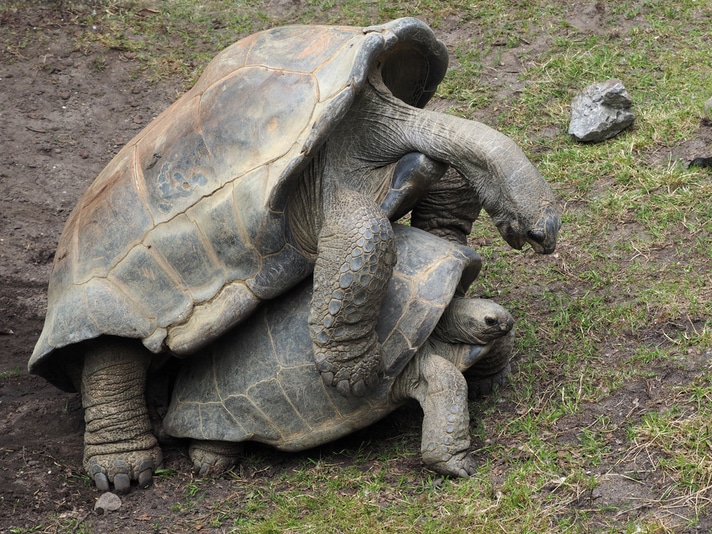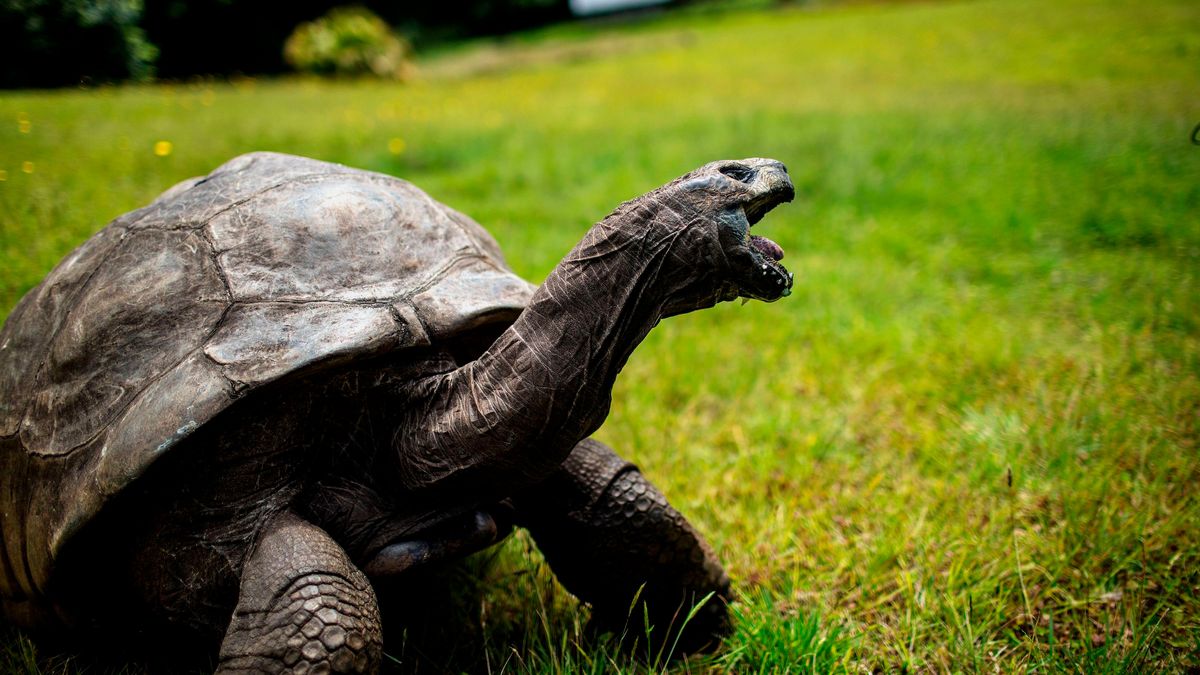The World's Oldest Tortoise: A Journey Through Time
When we think of longevity in the animal kingdom, one creature stands out as a symbol of endurance and resilience—the tortoise. Among these ancient reptiles, the world's oldest tortoise has captured the imagination of scientists and nature enthusiasts alike. This remarkable creature not only serves as a testament to nature's wonders but also offers valuable insights into biology, conservation, and environmental science.
The world's oldest tortoise is not just an individual animal; it represents centuries of evolution and adaptation. Tortoises have existed on Earth for millions of years, and their ability to survive in diverse environments makes them a fascinating subject for study. In this article, we will delve into the life of the world's oldest tortoise, exploring its history, biology, and the lessons we can learn from it.
Join us as we uncover the story of this incredible creature, its journey through time, and the impact it has on our understanding of longevity and conservation. Whether you're a nature lover, a biology enthusiast, or simply curious about the wonders of the animal kingdom, this article will provide you with valuable insights into the world's oldest tortoise.
Read also:Sun And Moon Sign Calculator Unlock The Secrets Of Your Zodiac Profile
Table of Contents
- Introduction
- Biography of the World's Oldest Tortoise
- Scientific Research on Tortoise Longevity
- Conservation Efforts for Tortoises
- Habitat and Adaptation
- Diet and Nutrition
- Factors Influencing Longevity
- Cultural Significance of Tortoises
- Threats to Tortoise Populations
- Conclusion
Biography of the World's Oldest Tortoise
Life History
The world's oldest tortoise, named Jonathan, is a Seychelles giant tortoise (Aldabrachelys gigantea) who resides on the remote island of Saint Helena in the South Atlantic Ocean. Born around 1832, Jonathan is believed to be over 190 years old, making him not only the oldest tortoise but also one of the oldest living animals on Earth.
Jonathan's life has spanned multiple generations and historical events, from the Industrial Revolution to the digital age. His longevity is a testament to the incredible resilience of tortoises and their ability to adapt to changing environments.
Biographical Data
| Attribute | Details |
|---|---|
| Name | Jonathan |
| Species | Seychelles Giant Tortoise (Aldabrachelys gigantea) |
| Age | Approximately 190 years |
| Location | Saint Helena, South Atlantic Ocean |
| Birth Year | Approximately 1832 |
Scientific Research on Tortoise Longevity
Scientists have long been fascinated by the extraordinary lifespan of tortoises. Studies have revealed several factors contributing to their longevity, including their slow metabolism, efficient immune systems, and genetic adaptations. Researchers are now exploring how these traits could offer insights into human aging and disease prevention.
Recent advancements in genomics have allowed scientists to sequence the DNA of tortoises like Jonathan, providing valuable data on the genetic mechanisms behind their extended lifespans. These findings could pave the way for breakthroughs in medical science and biotechnology.
Conservation Efforts for Tortoises
Protection of Tortoise Populations
Despite their resilience, tortoise populations face numerous threats, including habitat loss, poaching, and climate change. Conservationists around the world are working tirelessly to protect these magnificent creatures and ensure their survival for future generations.
- Establishment of protected habitats and wildlife reserves
- Implementation of breeding programs to increase population numbers
- Public awareness campaigns to educate communities about the importance of tortoise conservation
Success Stories
Efforts to conserve tortoises have yielded promising results in some regions. For example, the Galápagos Tortoise Conservation Program has successfully reintroduced tortoises to their natural habitats, helping to restore balance to ecosystems that rely on these gentle giants.
Read also:Exploring The Weather In Lake George A Comprehensive Guide
Habitat and Adaptation
Tortoises are highly adaptable creatures, capable of thriving in a variety of environments. From arid deserts to lush rainforests, these reptiles have evolved unique traits to survive in their respective habitats. Their ability to conserve water, regulate body temperature, and withstand extreme conditions makes them one of the most resilient species on Earth.
Diet and Nutrition
A balanced diet plays a crucial role in the health and longevity of tortoises. In the wild, they feed on a variety of plants, fruits, and vegetables, which provide essential nutrients for growth and development. Captive tortoises require a similar diet to maintain their health and well-being.
Studies have shown that proper nutrition can significantly extend the lifespan of tortoises, highlighting the importance of dietary management in conservation efforts.
Factors Influencing Longevity
Genetic Factors
Genetics plays a significant role in determining the lifespan of tortoises. Research has identified specific genes associated with longevity, offering insights into the biological mechanisms behind their extended lifespans.
Environmental Factors
In addition to genetics, environmental factors such as habitat quality, diet, and exposure to pollutants can also influence the longevity of tortoises. Creating safe and healthy environments for these creatures is essential for their survival and well-being.
Cultural Significance of Tortoises
Tortoises have long been revered in various cultures around the world. In many societies, they are seen as symbols of wisdom, patience, and longevity. Stories and myths about tortoises abound, reflecting their enduring presence in human history.
Today, tortoises continue to inspire artists, writers, and thinkers, serving as a reminder of the beauty and complexity of the natural world.
Threats to Tortoise Populations
Despite their resilience, tortoise populations face numerous threats that jeopardize their survival. Habitat destruction, illegal trade, and climate change are among the most pressing challenges facing these creatures today.
Addressing these threats requires a coordinated effort from governments, conservation organizations, and local communities. By working together, we can ensure that tortoises like Jonathan continue to thrive for generations to come.
Conclusion
In conclusion, the world's oldest tortoise, Jonathan, is not just a remarkable individual but a symbol of the incredible resilience and adaptability of nature. Through scientific research, conservation efforts, and public awareness, we can ensure that tortoises continue to play a vital role in our ecosystems and inspire future generations.
We invite you to share your thoughts and insights in the comments section below. If you enjoyed this article, please consider sharing it with your friends and family. For more fascinating stories about the natural world, explore our other articles on wildlife and conservation.


